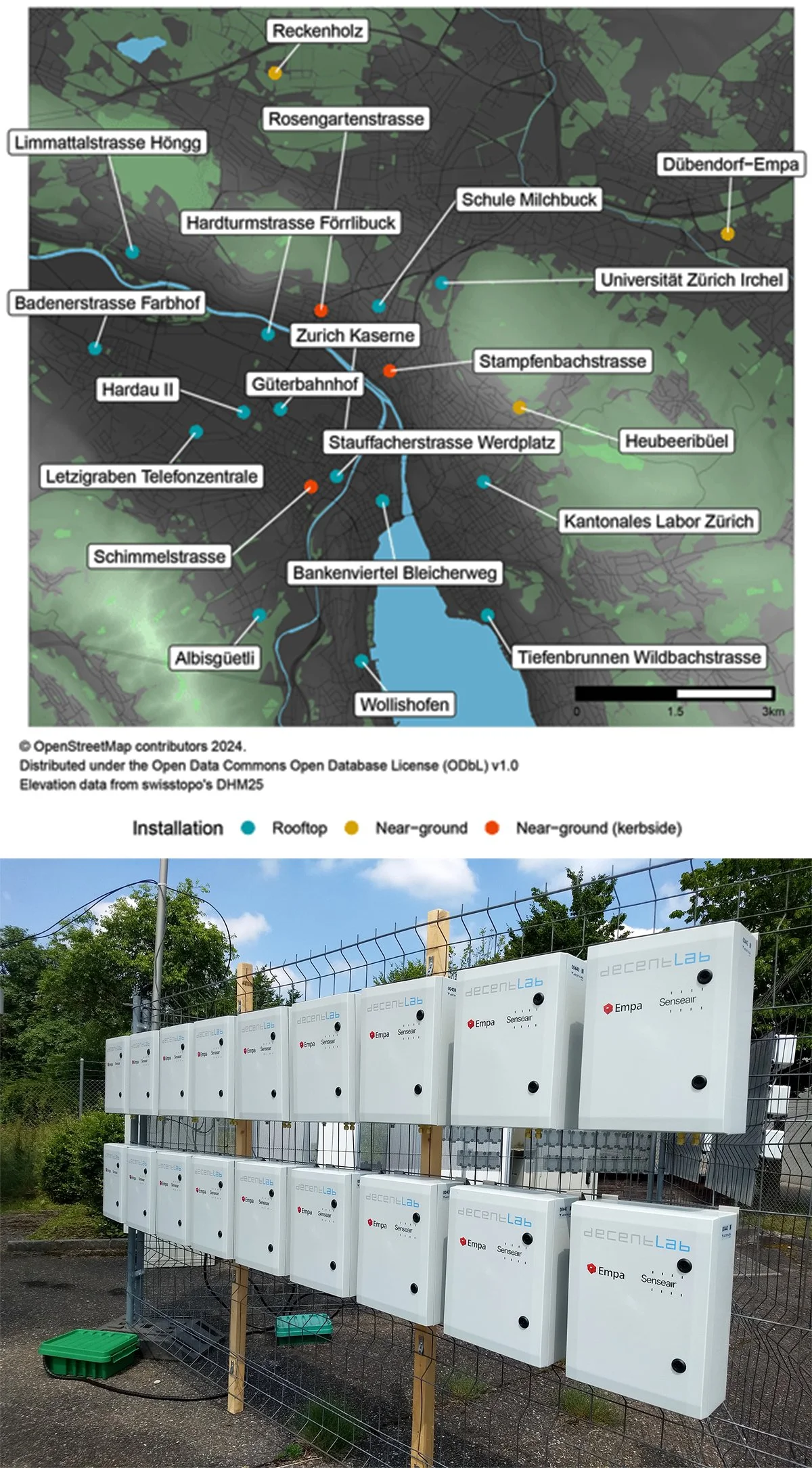CO₂ Monitoring in Zurich – Study Highlights Effectiveness of Sensor Networks Integrated by Decentlab
/Decentlab is proud to have contributed to the successful ZiCOS‑M project, a part of ICOS Cities. The project, run by Empa Laboratory for Air Pollution / Environmental Technology aimed to map the distribution and dynamics of CO₂ across the city of Zurich over two years, examining how CO₂ concentrations vary spatially and temporally, and how factors like traffic, vegetation, and wind affect these patterns.
A key focus was on using mid-cost sensors devices, including those from Decentlab, which, after careful calibration, provide reliable data and represent a cost-effective alternative to classical high-precision instruments. The study integrated three different sensor models into very similar monitoring systems integrated by Decentlab. Decentlab also provided the platforms for measurements and LoRaWAN-based data transmission.
Key findings:
CO₂ concentrations in Zurich averaged about 15 ppm above the regional background.
Significant fluctuations occurred at night and near forested areas, with values sometimes even exceeding 700 ppm.
On some days, CO₂-poor air from the surrounding rural areas was transported into the city.
After calibration, the sensors delivered precise and reliable data, comparable to expensive reference instruments.
Why it matters:
The study confirms that cost-effective and reliable sensor networks, like those deployed by Decentlab, offer a practical solution for better monitoring urban CO₂ emissions. This enables cities to track air quality more accurately and to plan targeted climate protection measures.
Full study


